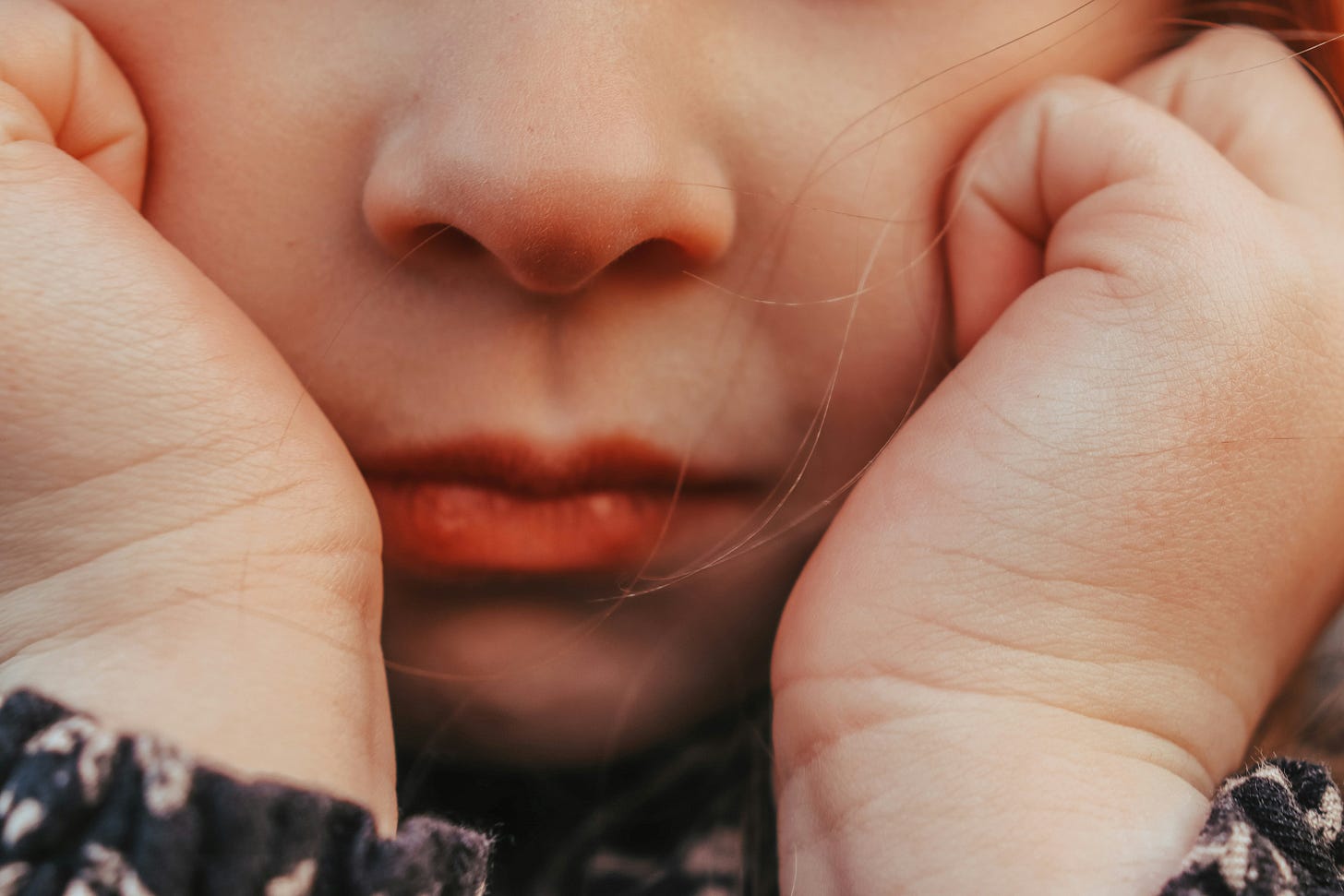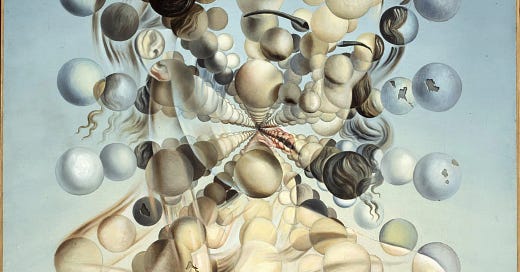Unmasking the Ego - Week 2
Join us as we explore and unravel childhood fears, subconscious beliefs, and self-judgment. Your inner critic isn’t your truth, stepping into the wisdom beneath the worry.
Delving into the Roots of Anxiety
Welcome to Week 2. This week, we’re delving deeper into the beliefs we hold and how the Ego uses them, where they originated, and whether they still serve us. One of the most important steps in healing anxiety is understanding the role of the Ego in shaping our thoughts, emotions, and reactions.
Before we begin, let’s take a moment to revisit Week 1.
Reflecting on Week One
Last week we introduced the foundation of our 9-week journey to make peace with anxiety by understanding it as a messenger rather than a life sentence. To begin to decode feelings of anxiety we examined some common Ego-driven beliefs gathered over a lifetime of experiences and ancestral teachings that manifested as fear.
Throughout the week you were asked to imagine what it might feel like to be free of anxiety, to notice where your triggers might lie, and to ground by spending time in nature. Having the courage to reflect on the fears that may be underpinning anxiety is a significant and powerful step, and something we can only do when we are ready.
How did you go?
IMPORTANT: By continuing to read or listen to this article you
agree that if you are in a high risk category, are experiencing suicidal ideation, or if the information presented causes strong emotional reactions you feel unable to process, you do not continue.
seek immediate support through your doctor and or mental health provider if needed.
agree you have read and abide by Michelle Cowles, Spiritual Healer terms and conditions and terms of use.
Ego, Who Are You?
The Ego is the part of us that helps us function in the physical world. Born when we are born into the physical, it also dies when we leave. Unlike our infinite Spirit, the Ego only belongs to any given lifetime. It’s often described as the psyche or conscious mind, the ‘suit’ we put on to be human, if you will. As we move through this life, our Ego acts as a filter, directing our focus and interpreting our experiences. When we understand this and begin to observe the Ego in action, we gain powerful insight into our experiences of this lifetime.
Have you noticed?
Our conscious mind chatters constantly, offering an inner narrative about everything we experience including what we may or may not experience. One of the most liberating truths on the healing path is this: you are not your thoughts. If you can observe your thoughts, then clearly there is a "you" that listens. This observer is your true self, NOT the anxious chatter of your Ego.
The Ego’s Noise Creates Anxiety, Not Reality
The Ego is as temporary as our physical body, and believe it or not, our thoughts have far less influence on reality than our Ego wants us to believe. Yet we often let our thoughts dictate how we feel, especially about things that haven’t even happened yet.
Anxiety thrives in the mental noise. The Ego fixates on potential problems, past ‘mistakes’, and imagined futures, creating a constant state of alert. This occurs because we have not yet understood that our experiences - even the mistakes - are not who we are. They are simply opportunities to grow, evolve, and remember our Divine, infinite self.
What We Know About the Ego
The Ego is a temporary, constructed part of our psyche: a filter shaped by experience, identity, and survival. It sits as a construct of our ordinary consciousness, separated by the veil of illusion, from the infinite, boundless self - the deeper essence that is not confined by time, space, or form.
The Ego’s primary role is to make sense of the world through boundaries and definition. It filters out what seems incomprehensible - the sheer vastness of who we truly are - because to confront the full expanse of our infinite nature is to face the dissolution of the Ego’s carefully built identity.
Infinity challenges the Ego. The idea that we are not just individual selves but expressions of something limitless can feel threatening, even annihilating, to the part of us that thrives on control, distinction, and familiarity.
In response, the Ego constructs narratives, roles, and a reality anchored in the ‘known’: in what can be labeled, measured, and predicted. It clings to certainty and form, fearing the mystery that lies beyond the mind’s grasp. Its fears are rooted in dissolution: the fear of being nothing, or worse, of being everything.
But this fear is also a gateway. When we recognise the Ego not as an enemy, but as a necessary part of the human experience - a guide rather than a jailer - we can begin to loosen its grip. We can witness its fears without becoming them. And from there, we step closer to the deeper truth: that beyond the wall of perception, we are vast, infinite, and already whole.
‘Mistakes’
As adults, we are really no different than children. We are all experiential learners, whether figuring out how to tie our shoelaces or learning by repeating uncomfortable experiences to remember we can trust our inner guidance. And how many times must we repeat a lesson? As many as we need. Life offers countless opportunities to guide us back to our truth.
And there is no judgment here.
One of the greatest misconceptions about growing up is the idea that once we’ve finished school, training, or childhood, we shouldn’t make ‘mistakes’. But of course we will. We’re human. ‘Mistakes’ aren’t failures, instead they’re invitations to self-correct. To try again. To find a way to tie the laces that holds. To say "no" when something doesn’t feel right. To choose something better, something more aligned, next time.
When we don’t understand this, we critque ourselves.
We doubt our abilities.
We judge our past experiences that didn’t feel good.
We seek perfectionism or to hide our ‘failures’ and avoid further pain.
The Illusion of ‘Safe’
This is the Ego stepping in to keep us ‘safe’. Safe from others’ judgment by fostering judgment of ourselves. It seeks to direct us from further ‘failures’ by protecting our heart from our negative feelings of stress, fear, shame. In a monstrous flaw in logic, the Ego seeks to guide us away from future unknown hurts by encouraging us to whip ourselves for every perceived shortcoming. Keeping ourselves small rather than recognising that every step, every decision is merely an opportunity to choose something that feels better, that is more aligned with who we are.
But who says we need to get everything right on the first try or the fifth, the tenth, or hundredth? Somewhere along the way, our inner voice, the Ego, stops being a loving caretaker and starts acting like an enemy within.
Here’s the kicker: as energetic beings we are creators. What we focus on expands.
The Ego, the unchecked part of ourselves, is actively creating more of what we focus on. Often, it generates more of what we don’t want, simply by pulling our attention toward fear instead of possibility.

How Childhood Experiences Shape Anxiety
Much of our anxiety stems from early experiences. Before we even have the ability to think critically, we assign meaning to events. These meanings become embedded beliefs in the subconscious mind and influence how we respond to the world as adults.
For example, imagine a 3-year-old in a minor car accident on a rainy day. The child feels shock but isn’t hurt. With no way to rationalise the event, the child may associate rain (or cars) with fear. Later in life, they may even feel anxious on overcast days without knowing why.
Or consider a 4-year-old excited to share something with a busy parent who doesn’t stop to listen. That moment might create a belief: “What I say doesn’t matter.” As an adult, this can manifest as social anxiety or a fear of expressing needs.
Or observe the frantically busy parent putting everyone else’s needs first and think this is how to BE.
These are innocent childhood mis-interpretations, and are examples of the foundation of many anxiety patterns adults carry.
The Inner Child is Always Listening
The limited juvenile interpretation of events creates Egoic imbalance and can lead to many unhelpful patterns. For example, feeling unheard or unimportant, fearful in certain situations, etc. The point at which the belief was created is still very much active in the sub-conscious as the inner child. This is the part of us that hears every word we speak and think - especially about ourselves.
Our self-talk often mirrors the criticism we once received or internalised. This negative inner dialogue (whether about our body, worth, or achievements) deepens our anxiety and reinforces a belief that we’re not safe, not good enough, or not deserving.
How We Speak to Ourselves Matters
Take a moment to reflect on your own self-talk and notice its true function. Do you criticise or harass yourself for any of the following?
Being too fat, thin, old, young, short, tall, not clever enough, too smart, undeserving, selfish, unsuccessful …
You are infinite energy in the body you carefully selected to evolve and expand in the physical - how does judging this choice undermine yourself - or perhaps you are here to learn self acceptance?
Not exercising/enough, poor diet choices
All invitations to return to loving and nurturing yourself- gently. To remembering that you are deserving of wellness.
Not prioritising yourself, prioritising yourself - being selfish
Oh humans, how we complicate things. When we learn to love and nurture ourselves, we naturally overflow this energy outwards. It is not possible to give from an empty cup.
Compare yourself to others
Stops us from looking deeper. We weren’t born with self-critiquing. Where did we learn to compare or judge ourselves and is it helpful? Are we ready to offer ourselves unconditional love? And if not, why not?
Blame yourself for everything that goes ‘ wrong ’ in your life
Time to start seeing your Divine life plan. Our highest self must use discomfort to guide us from what is not meant for us. It’s that simple.
Endlessly revisit past mistakes
Our ‘mistakes’ were only ever meant to guide us to choose something better. Take some time and figure out what to do differently next time and LET IT GO.
Using drugs, alcohol, shopping, gambling, smoking, drama
Hello old friends, you helped me survive the moment until I was ready to do my work and focus within, to recognise that the power always rested with me. It makes no sense to beat our selves up for our dysfunctional coping mechanisms - they served their purpose for a time.
Not being good enough to deserve what the heart desires
This is the human wound. If we are infinite energy, we are enough exactly as we are. It is the human self that convinces us otherwise. Isn’t it time to let this go?
As we begin to understand our patterns, it becomes clear that allowing our Egoic mind free rein can be exceedingly toxic for our well-being.
EMOTIONS: What feels good and true is aligned with who we are as Spirit; what feels uncomfortable is showing us what we are egoically focused on is not who we are and inviting us to choose something different; to heal a trauma and to create a boundary (with love).

Is it Time to Rescue your 3-Year-Old Self?
❤️Close your eyes and imagine your 3-year-old self standing before you. How can this little child deserve harsh words or treatment and would you speak to your best friend the way you speak to yourself?
❤️Look into their eyes and notice their body language. How does s/he respond when you say these critical things to yourself?
❤️What does s/he feel when s/he hears your harsh self-judgment?
If you feel your inner child, the younger version of yourself, is unlovable, or you feel triggered and unable to work with this version of you, you are being invited to seek external support. Please see your mental health provider to guide you through this journey. You deserve it.
❤️Now imagine how s/he might feel if you promise to treat yourself kindly:
“I understand that we are learning as best we can, and I will no longer speak to us this way.”
It’s okay if it takes practice. You might notice that your inner child is a little skeptical. Habits take time to change and every kind word, every shift in inner dialogue, begins to soothe your anxious mind.
❤️Take some time, now, and listen to the inner child meditation to support unwinding the habit of (self) criticism. JOURNAL your response.
Reflect and Journal
Journaling offers a powerful way to process emotions, gain self-awareness, and reduce stress. By putting thoughts into words, it creates space for clarity, healing, and a deeper connection to your inner truth. Allow yourself some time to process today’s reading and when you are ready take your JOURNAL and consider:
What are the emotional consequences of self-criticism?
How does anxious thinking keep you from feeling safe and at peace?
What new belief or intention would you like to hold instead?
Write down any epiphanies - awareness of patterns and new ways of perceiving can create healthy change. What are you noticing?
This Week: Set an Intention for Loving Self-Talk
As we begin to soften the voice of the Ego, one of the most healing steps we can take is to reconnect with and care for our inner child — the part of us still tender, still learning, and always listening.
Write a loving intention to your inner child and place it where you can see it.
Become the adult defender your inner child needed, reshaping your thoughts with love. Eg, “That was stupid” might become, “I am learning as best I can.”
Become the observe and notice what you are allowing your Ego to focus on.
When you notice that you are treating yourself harshly, say to your inner child
“I am sorry. Please forgive me. I love you. Thank you.” 1
Let this be a beautiful reminder: All energy follows thought. Our thoughts are literally creating our experiences - and we can choose our thoughts.
What will you choose to create this week?
I am enjoying this peaceful meditation and you might too. These lyrics have been shown to have a powerful effect on our subconscious coding - use it liberally!
Meditation: Ho’oponopono
I am so glad you are here. If you have appreciated this article please click the ❤️, subscribe, share, comment. Thank you from my heart to yours.
Blessed be
Michelle Cowles
Spiritual Healer, Energy Therapist
Copyright © Michelle Cowles 2025
You can also find me at www.michellecowles.com
Disclaimer: The information on this page is general, lifestyle information and should not be used to diagnose or treat a health problem or disease. If this article raises mental health issues, please contact your General Practitioner, mental health worker, or Lifeline on 13 11 14 (Australia) OR find support by country at www.helpguide.org.
Ho’oponopono, The Hawaiian Prayer






